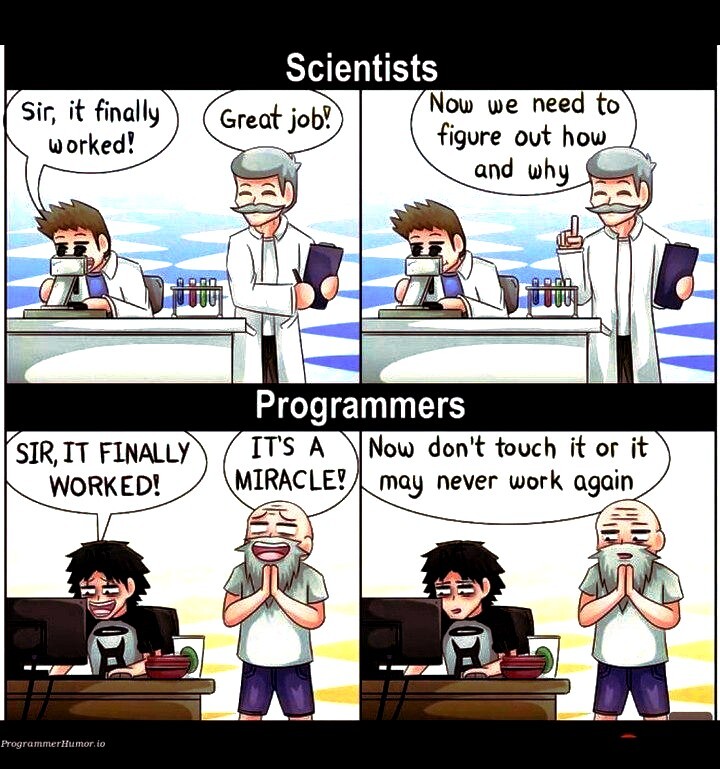No, generally speaking. But sometimes yes.
I would say that myself and most programmers appreciate there is always some logical root cause for why things work or don't, and its very unsatisfying to have thigs work without knowing why. It's also problematic, because if you don't know why then it might break again in future and you can't fix it.
That said, programming is different from pure science. The explicit point of science is to uncover the truth and understand and make it replicable. The point of programming is to have a software product that functions.
So realistically we may as programmers occasionally let something slide without knowing the full detail, because we are working to different goals.
This is especially true based on the category/criticality.
Something "magically" starts working in the core backend payments API code? Not good enough, we need to know exactly what the cause was and cover it in tests.
Something "magically" fixes the UI bug that caused a weird but inconsequential margin padding that affected Samsung Galaxy S21 devices ONLY and no other phone? Hallelujah, it's a miracle.
